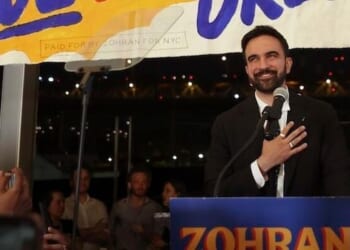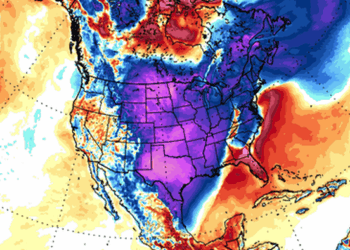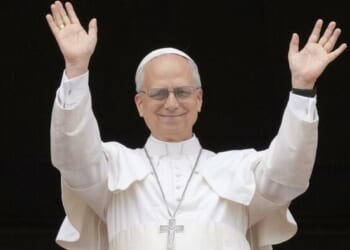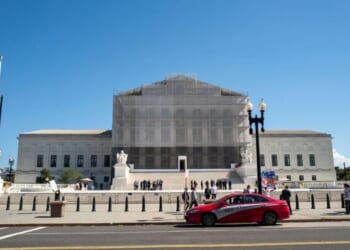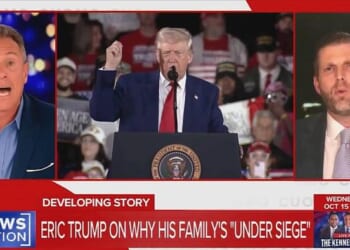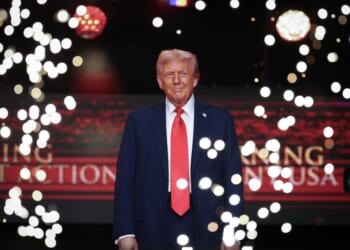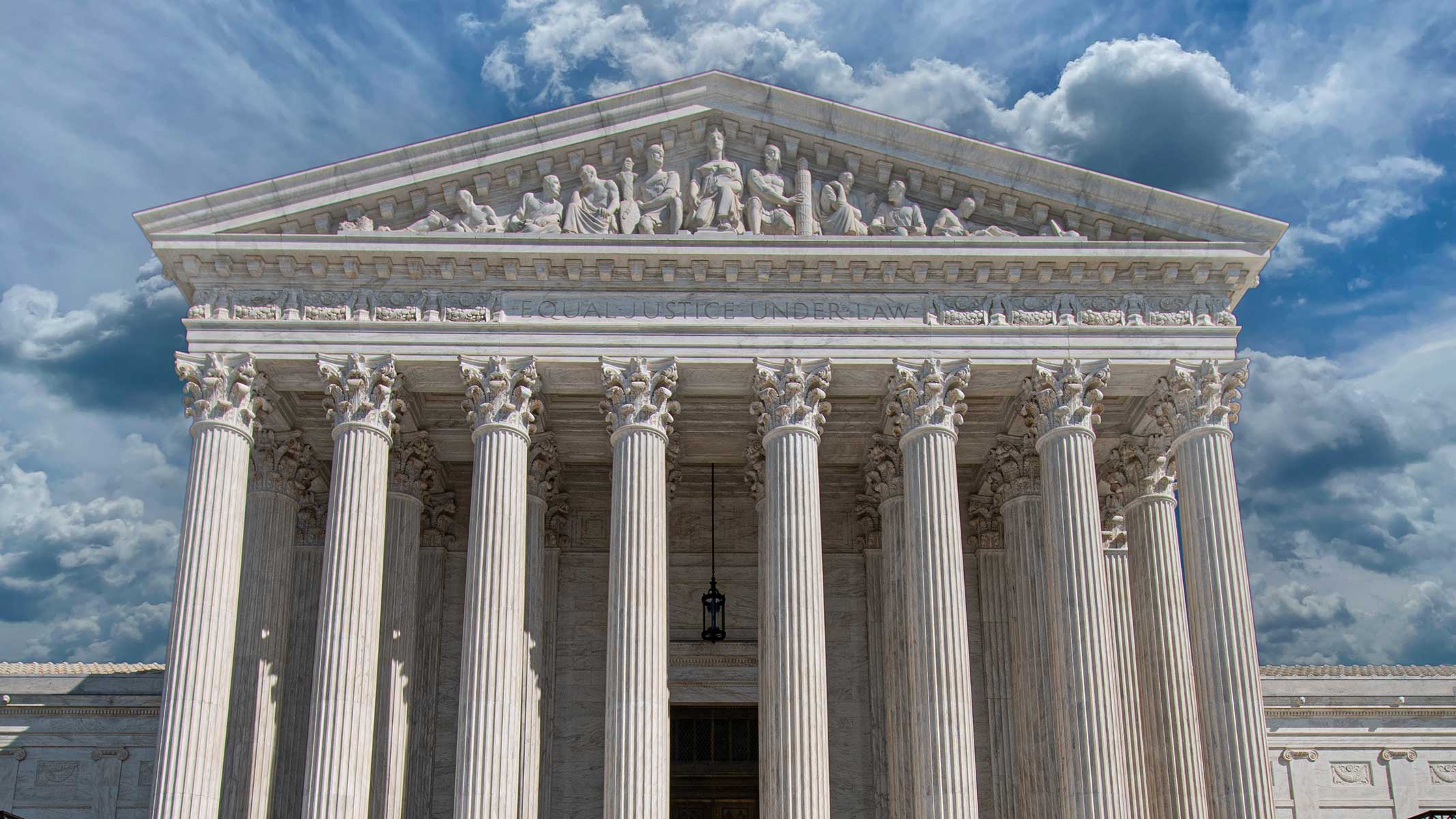
Introduction
On April 9, 2025, President Trump issued a memorandum entitled “Directing the Repeal of Unlawful Regulations,” which directed the heads of all federal agencies to identify and repeal any regulations that run afoul of 10 recent U.S. Supreme Court decisions, including Carson v. Makin (2020).[1] In Carson, the Court made clear that the First Amendment bars the government from excluding religious groups—either because of their religious character or because they engage in religious conduct—from programs that enlist private organizations to advance public goals (such as education, social services, and healthcare). Nor may the government require as a condition of participation that a religious group agree to engage in only “secular” or “nonsectarian” activities.
Importantly, Carson squarely rejected the argument that, while the government may not exclude religious organizations from public-benefit programs altogether, it may refuse to fund religious conduct. This so-called “status/use” distinction, the Court held, “lacks meaningful application” because use-based and status-based discrimination against religion are equally “offensive to the Free Exercise Clause.”[2]
Unfortunately, the “status/use” distinction still pervades federal regulations that govern the participation of religious entities in federal grant programs. Dozens of these regulations unconstitutionally discriminate by mandating that private organizations refrain from engaging in religious activities as a condition of their participation in federal programs. These regulations are a vestige of an older view of the First Amendment’s establishment clause—one that has now been abandoned by the Supreme Court—that restricts the government’s ability to extend public benefits to religious institutions and perhaps categorically prohibits funding religious conduct. Carson’s firm rejection of that view represents the culmination of decades of decisions making clear that the constitution demands government neutrality, not hostility, to religion.
The president’s memorandum built upon Executive Order 14219, which directed the heads of all agencies to identify unlawful and potentially unlawful regulations and to formulate plans to repeal them. The memorandum stated that “[t]his review-and-repeal effort shall prioritize, in particular, evaluating existing lawfulness under” the ten decisions, including Carson v. Makin. It further directed the agencies to take immediate steps to repeal unlawful regulations and to finalize rules without notice and comment, pursuant to the “good cause” exception in the Administrative Procedures Act.
In order to implement the president’s directive, all agencies should undertake a comprehensive review of regulations that restrict recipients of federal funding from engaging in religious activities. Agencies could begin by reviewing regulations related to President George W. Bush’s 2001 Faith-Based and Community Initiatives. While the program was clearly a well-intentioned attempt to increase the participation of religious organizations in federal grant programs, the regulatory framework established under this initiative was informed by a misguided understanding of the Establishment Clause (based on erroneous and since-overturned Supreme Court precedents), which viewed religious conduct as constitutionally suspect, when in fact the opposite is true. This understanding is also reflected in several federal statutes that prohibit the direct expenditure of federal funds on religious instruction, worship or proselytization.
The initial Bush-era regulatory apparatus, as well as tweaks by subsequent administrations, has resulted in a pervasive system of unconstitutional discrimination against religious organizations and religious conduct. While President Bush intended to ensure that faith-based organizations could compete equally for federal funding, the implementing regulations relied on an unconstitutional status/use framework. As the Court has now made clear, the government cannot discriminate against institutions based on their religious status or because they intend to put public funds to “religious use.” But federal agencies continue to operate under outdated regulatory frameworks in violation of this principle.
The Bush administration issued executive orders requiring the following agencies to complete a systematic review of their partnership programs to determine where faith-based organizations could be more involved:
- Department of Justice
- Department of Agriculture
- Department of Education
- Department of Housing and Urban Development
- Department of Health and Human Services
- Department of Labor
- Agency for International Development
In addition, the following agencies, though not explicitly listed in the Bush-era executive orders, also revised their policies vis-à-vis faith-based organizations:
- Corporation for National and Community Service
- Department of Commerce
- Department of Homeland Security
- Small Business Administration
- Department of Veterans Affairs
In the last of a trio of executive orders[3] related to faith-based participation in federal social service programs, the Bush Administration mandated the following restrictions on religious participation, which each agency subsequently adopted:
The Federal Government must implement Federal programs in accordance with the Establishment Clause and the Free Exercise Clause of the First Amendment to the Constitution. Therefore, organizations that engage in inherently religious activities, such as worship, religious instruction, and proselytization, must offer those services separately in time or location from any programs or services supported with direct Federal financial assistance, and participation in any such inherently religious activities must be voluntary for the beneficiaries of the social service program supported with such Federal financial assistance.
Accordingly, a faith-based organization… [may] not use direct Federal financial assistance to support any inherently religious activities, such as worship, religious instruction, or proselytization.
President Trump’s memorandum requires that these restrictions—and the regulations that flow from them, which are detailed below—be identified and repealed.
Agency Implementation of the Unconstitutional Status/Use Distinction
The following is a non-exhaustive list of federal regulations that run afoul of Carson v. Makin’s nondiscrimination mandate.
Department of Justice
- “The organization [providing social services under a program of the Department] must separate in time or location any privately funded explicitly religious activities from activities supported by direct Federal financial assistance.” 28 C.F.R. § 38.6(b)(3).
Department of Agriculture
- “The following are ineligible projects… Loans supporting inherently religious activities, such as worship, religious instruction, proselytization, or to pay costs associated with acquisition, construction, or rehabilitation of structures for inherently religious activities, including the financing of multi-purpose facilities where religious activities will be among the activities conducted.” 7 C.F.R. 5001.115(r).
- “A faith-based organization that participates in USDA assistance programs… [may] not use USDA direct assistance to support any ineligible purposes, including explicitly religious activities that involve overt religious content such as worship, religious instruction, or proselytization.” 7 C.F.R. § 16.3(b).
- The Agency “prohibit[s] the use of direct financial assistance to engage in explicitly religious activities, subject to any accommodations that are granted to organizations on a case-by-case basis in accordance with the Constitution and laws of the United States.” 7 C.F.R. § 16.3(d)(2).
- “Sanctuaries, chapels, or other rooms that an organization receiving direct assistance from USDA uses as its principal place of worship, however, are ineligible for USDA-funded improvements.” 7 C.F.R. § 13.3(f).
- “Any use of USDA direct financial assistance for equipment, supplies, labor, indirect costs, and the like shall be prorated between the USDA program or activity and any ineligible purposes by the faith-based organization in accordance with applicable laws, regulations, and guidance.” 7 C.F.R. § 13.3(f)(1).
- “Organizations that receive USDA direct assistance under any USDA program may not engage in explicitly religious activities, including activities that involve overt religious content such as worship, religious instruction, or proselytization, as part of the programs or services funded by USDA direct assistance. If an organization conducts such activities, the activities must be offered separately, in time or location, from the programs or services supported with USDA direct assistance, and participation must be voluntary for beneficiaries of the programs or services supported with such USDA direct assistance.” 7 C.F.R. § 16.4(b).
Department of Education
- “A private organization that provides direct Federal services under a program of the Department and engages in explicitly religious activities, such as worship, religious instruction, or proselytization, must offer those activities separately in time or location from any programs or services funded by the Department through a contract with a grantee or subgrantee, including a State.” 38 C.F.R. § 61.64.
- “All organizations that receive grants under a Department program, including organizations with religious character, motives, or affiliation, must carry out eligible activities in accordance with all program requirements, including those prohibiting the use of direct Federal financial assistance to engage in explicitly religious activities, subject to any accommodations that are granted to organizations on a case-by-case basis in accordance with the Constitution and laws of the United States, including Federal civil rights laws.” 34 C.F.R. § 75.52(3).
- “A private organization that applies for and receives a grant under a program of the Department and engages in explicitly religious activities, such as worship, religious instruction, or proselytization, must offer those activities separately in time or location from any programs or services funded by a grant from the Department.” 34 C.F.R. § 75.52(C)(1).
Department of Health and Human Services
- “No program participant that receives direct funding under an applicable program may expend the program funds for inherently religious activities, such as worship, religious instruction, or proselytization. If an organization conducts such activities, it must offer them separately, in time or location, from the programs or services directly funded under any applicable program, and participation must be voluntary for program beneficiaries.” 45 C.F.R. § 1050.3.
- See also 42 C.F.R. § 54.4 and 45 C.F.R. § 250.34 for similar restrictions on Substance Abuse and Mental Health Services Administration (SAMHSA) and Temporary Assistance for Needy Families (TANF) funding.
Department of Housing and Urban Development
- “A faith-based organization that applies for, or participates in, a HUD program… [may not] use direct Federal financial assistance… to support or engage in any explicitly religious activities, including activities that involve overt religious content such as worship, religious instruction, or proselytization.” 24 C.F.R. § 5.109(d)(1).
- “Program funds may not be used for the acquisition, construction, or rehabilitation of structures to the extent that those structures are used for inherently religious activities… Where a structure is used for both eligible and inherently religious activities, program funds may not exceed the cost of those portions of the acquisition, construction, or rehabilitation that are attributable to eligible activities” 24 C.F.R. § 583.150(5).
- “Organizations that are directly funded under the Supportive Housing Program [and the S+C program] may not engage in inherently religious activities, such as worship, religious instruction, or proselytization as part of the programs or services funded under this part. If an organization conducts such activities, the activities must be offered separately, in time or location, from the programs or services funded under this part, and participation must be voluntary for the beneficiaries of the HUD-funded programs or services.” 24 C.F.R. § 583.150(2) & 24 C.F.R. § 582.115 (2)–(3).
Department of Labor
- “Organizations that receive direct Federal financial assistance may not engage in explicitly religious activities (including activities that involve overt religious content such as worship, religious instruction, or proselytization) as part of the programs or services funded with direct Federal financial assistance. If an organization conducts such explicitly religious activities, the activities must be offered separately, in time or location, from the programs or services funded with direct Federal financial assistance, and participation must be voluntary for beneficiaries of the programs and services funded with such assistance.” 29 C.F.R. § 2.33(b)(1).
Agency for International Development (USAID)
- “Organizations that receive direct Federal financial assistance from USAID under any USAID award or subaward may not engage in explicitly religious activities (including activities that involve overt religious content such as worship, religious instruction, or proselytization) as part of the programs or services directly funded with direct Federal financial assistance from USAID.” 22 C.F.R. § 205.1(e).
- “USAID will consult with the U.S. Department of Justice if, in implementing a specific program involving overseas acquisition, rehabilitation, or construction of structures used for explicitly religious activities, there is any question about whether such funding is consistent with the Establishment Clause.” 22 C.F.R. § 205.1(g).
Corporation for National and Community Service
- “A sponsor or volunteer station may… [may] not use AmeriCorps funds to support any inherently religious activities, such as worship, religious instruction, or proselytization, as part of the programs or services funded. If an organization conducts such activities, the activities must be offered separately, in time or location, from the programs or services funded under this part.” 45 C.F.R. § 2553.91. See also 45 C.F.R. § 2552.121(g)(2).
- “A Foster Grandparent or a member of the project staff funded by AmeriCorps shall not give religious instruction, conduct worship services or engage in any form of proselytization as part of his/her duties.” 45 C.F.R. § 2552.121(g)(1).
Department of Commerce
- “A covenant of use shall (at a minimum) prohibit the use of the Real Property or the tangible Personal Property for explicitly religious activities in violation of applicable Federal law.” 13 C.F.R. § 314.10.
Department of Homeland Security
- “Organizations that receive direct financial assistance from DHS to participate in or administer any social service program may not use direct Federal financial assistance that it receives (including through a prime or sub-award) to support or engage in any explicitly religious activities (including activities that involve overt religious content such as worship, religious instruction, or proselytization) or in any other manner prohibited by law.” 6 C.F.R. § 19.4(a).
- “Organizations receiving direct financial assistance from DHS for social service programs are free to engage in explicitly religious activities, but such activities must be offered separately, in time or location, from the programs or services funded with direct financial assistance from DHS, and participation must be voluntary for beneficiaries of the programs or services funded with such assistance.” 6 C.F.R. § 19.4(b).
Department of Veterans Affairs
- “Organizations that engage in explicitly religious activities, such as worship, religious instruction, or proselytization, must offer those services separately in time or location from any programs or services funded with direct financial assistance from VA.” 38 C.F.R. § 61.64(c).
- “No organization may use direct financial assistance from VA under this part to pay for any of the following: (i) Explicitly religious activities such as, religious worship, instruction, or proselytization; or (ii) Equipment or supplies to be used for any of those activities.” 38 C.F.R. § 62.62(b)(1).
- “Organizations that receive direct Federal financial assistance from a VA program may not engage in any explicitly religious activities (including activities that involve overt religious content such as worship, religious instruction, or proselytization) as part of the programs or services funded with direct Federal financial assistance from the VA program, or in any other manner prohibited by law.” 38 C.F.R. § 50.2(b).
Conclusion
The Supreme Court has unequivocally established that the government cannot discriminate against religious organizations based on their religious status or exclude them from generally available public benefits because they engage in religious activities. The regulatory framework detailed above, spanning multiple federal agencies, directly violates these constitutional principles. These regulations impose precisely the kind of status-based and use-based religious discrimination that recent Supreme Court precedent has forbidden, and the agencies governed by them should take immediate action, pursuant to President Trump’s memorandum, to repeal them and replace them with language that federal financial assistance is available without regard to religious use or status.
Endnotes
- Presidential Memorandum,“Directing the Repeal of Unlawful Regulations,” April 9, 2025.
- Carson v. Makin, 596 U.S. 767, 787-788 (2022).
- Exec. Order No. 13198, “Executive Order: Establishment of White House Office of Faith-Based and Community Initiatives”; Exec. Order No. 13199, “Agency Responsibilities with Respect to Faith-Based and Community Initiatives”; Exec. Order. No. 13279, “Executive Order: Equal Protection of the Laws for Faith-Based and Community Organizations.”
Photo: Douglas Rissing / iStock / Getty Images Plus
Are you interested in supporting the Manhattan Institute’s public-interest research and journalism? As a 501(c)(3) nonprofit, donations in support of MI and its scholars’ work are fully tax-deductible as provided by law (EIN #13-2912529).




